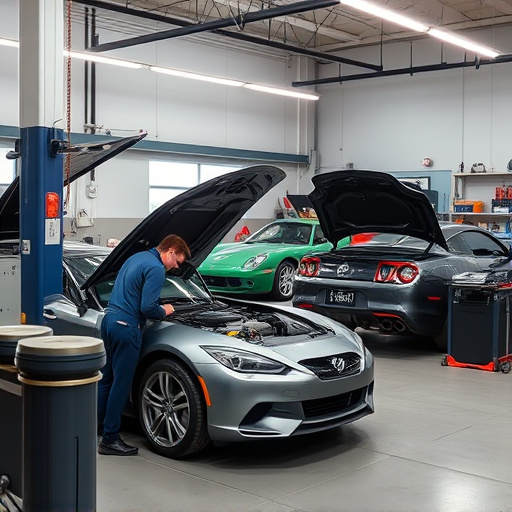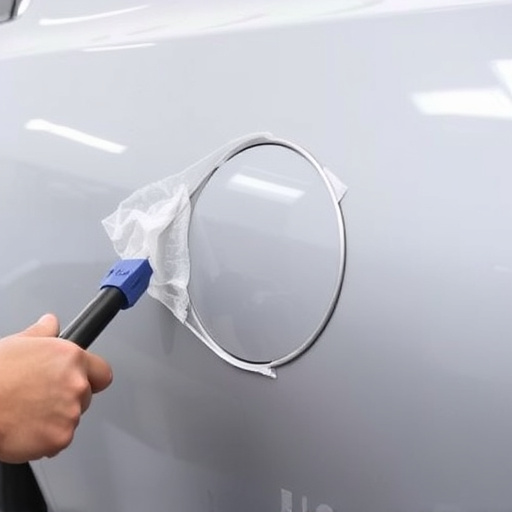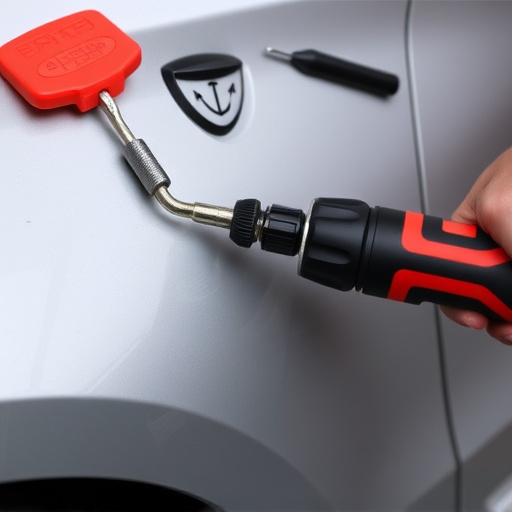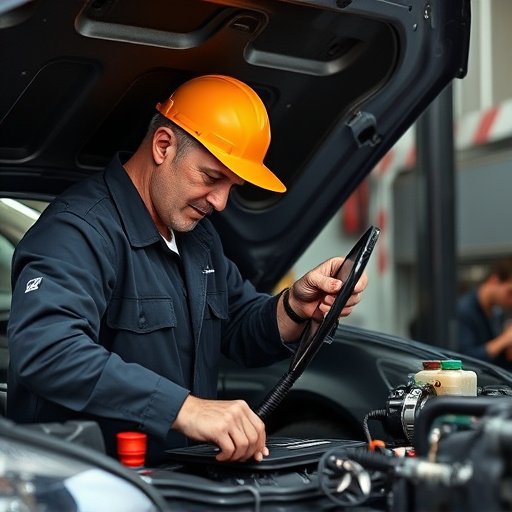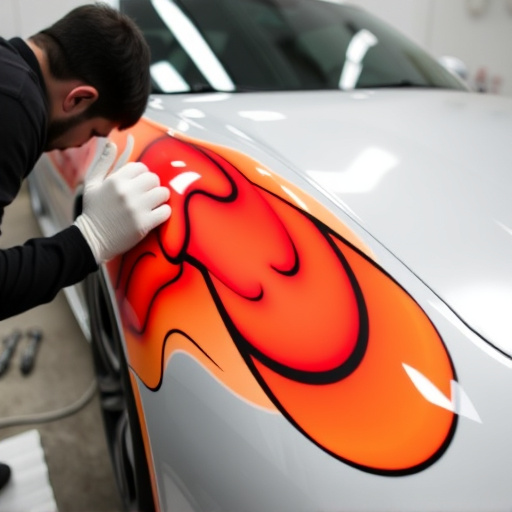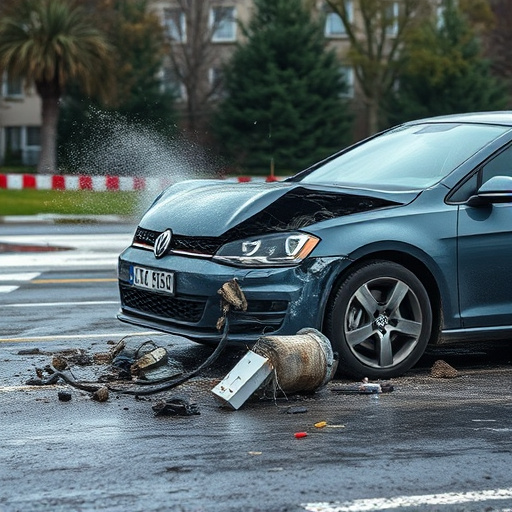Airbag safety certification is a stringent process vital for automotive protection, covering material strength, deployment speed, and consistent performance across vehicle models. The automotive industry is transforming repair practices due to stricter standards, demanding advanced training programs for technicians. This evolution ensures the integrity and reliability of airbag systems during repairs, fostering consumer confidence. Stricter standards, rigorous testing, and specialized training are essential for maintaining and enhancing airbag safety certification, ultimately making roads safer.
The future of automotive repairs hinges on robust airbag safety certification practices. As vehicles become increasingly complex, ensuring the safe integration and reliable operation of airbags is paramount. This article explores the critical role of airbag safety certification in shaping repair practices. We delve into its foundational importance for passenger protection, discuss evolving standards, and emphasize the need for rigorous testing and training to guarantee consumer safety going forward.
- Understanding Airbag Safety Certification: The Foundation of Automotive Protection
- Evolving Repair Practices: Adapting to Stricter Airbag Safety Standards
- Ensuring Consumer Safety: The Role of Rigorous Testing and Training in the Future of Repairs
Understanding Airbag Safety Certification: The Foundation of Automotive Protection

Airbag safety certification is a critical process that forms the foundation of automotive protection. It involves rigorous testing and evaluation to ensure airbags function optimally during collisions, significantly reducing the risk of severe injuries or fatalities. This certification process encompasses various factors, including material strength, deployment speed, and consistency in performance across different vehicle models. By setting stringent standards, manufacturers can guarantee that airbag systems provide reliable protection for all passengers.
A robust airbag safety certification system is essential for fostering public trust in vehicles’ safety features. As car body repair and auto body work become more sophisticated, maintaining these high-safety standards is paramount. Auto repair services must adhere to the latest guidelines to keep up with technological advancements while ensuring that every vehicle leaves the workshop equipped with reliable airbags, ultimately contributing to safer roads for all users.
Evolving Repair Practices: Adapting to Stricter Airbag Safety Standards
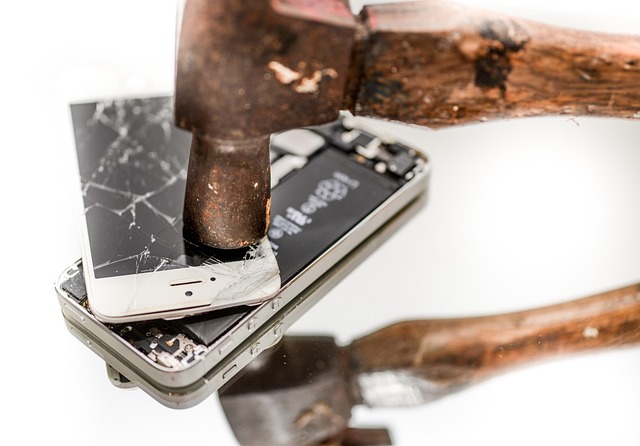
The automotive industry is witnessing a significant shift in repair practices, primarily driven by stricter airbag safety certification standards. As airbag technology continues to advance, ensuring the integrity and reliability of these safety systems during vehicle repairs has become paramount. This evolution demands that auto body services and collision centers implement robust training programs for their technicians, keeping them updated with the latest industry standards and protocols.
Adapting to these changes is crucial for maintaining high-quality repair work across various services, including vehicle dent repair and car scratch repair. By embracing advanced training methods, such as virtual simulations and regular assessments, professionals in the auto body sector can effectively navigate these stringent requirements. This not only guarantees the safety of vehicles equipped with modern airbag systems but also fosters consumer confidence in their chosen repair providers.
Ensuring Consumer Safety: The Role of Rigorous Testing and Training in the Future of Repairs
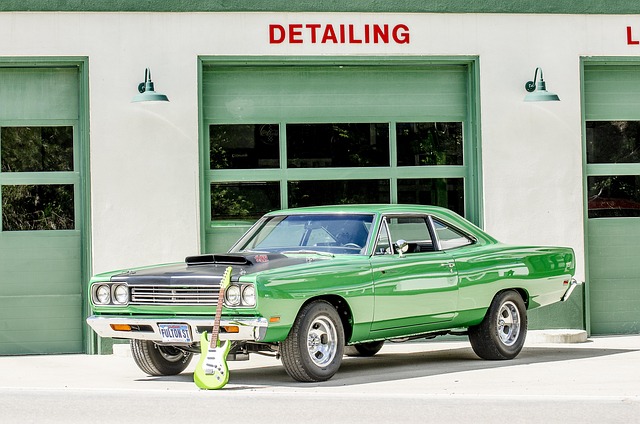
Ensuring consumer safety is paramount in the automotive industry, especially when it comes to airbag systems, which play a critical role in vehicle collision repair. As the future of repairs evolves, rigorous testing and training will be pivotal in maintaining and enhancing airbag safety certification practices. Stricter standards and comprehensive quality assurance processes are essential to guarantee that every vehicle, from luxury sedans to rugged SUVs, meets the highest safety thresholds following a bumper repair or dent removal.
Professional technicians must stay abreast of cutting-edge training programs focused on airbag deployment mechanisms, sensor functionality, and diagnostic tools. These skill sets enable them to accurately assess and rectify any issues related to these life-saving systems. By prioritizing continuous education and adherence to stringent certification criteria, the industry can foster public trust, ensuring that vehicle collision repair processes not only restore physical damage but also preserve the safety of every occupant, making our roads safer for everyone.
The future of repair services hinges on embracing stringent airbag safety certification practices. As automotive standards evolve, so too must our repair methods. Through rigorous testing, comprehensive training, and adherence to certified guidelines, we can ensure consumer safety without compromising the integrity of vehicle repairs. This approach not only meets regulatory requirements but also fosters a reliable and secure automotive industry for years to come.

